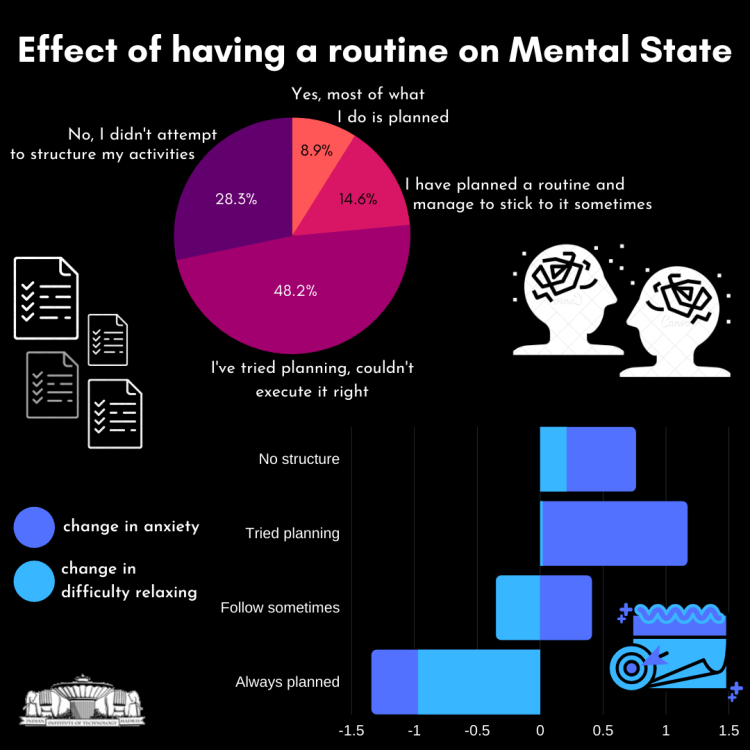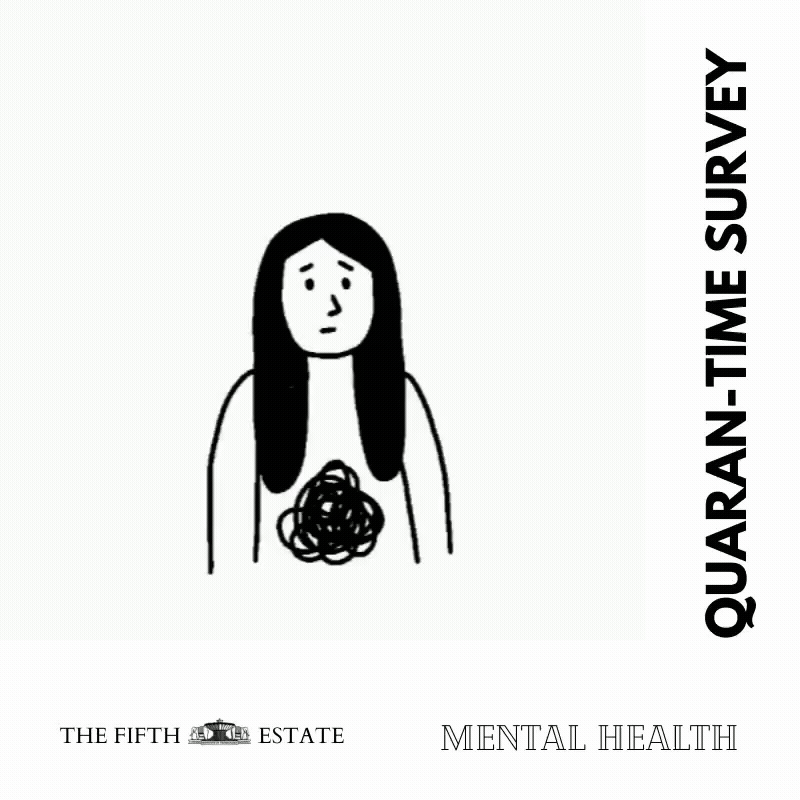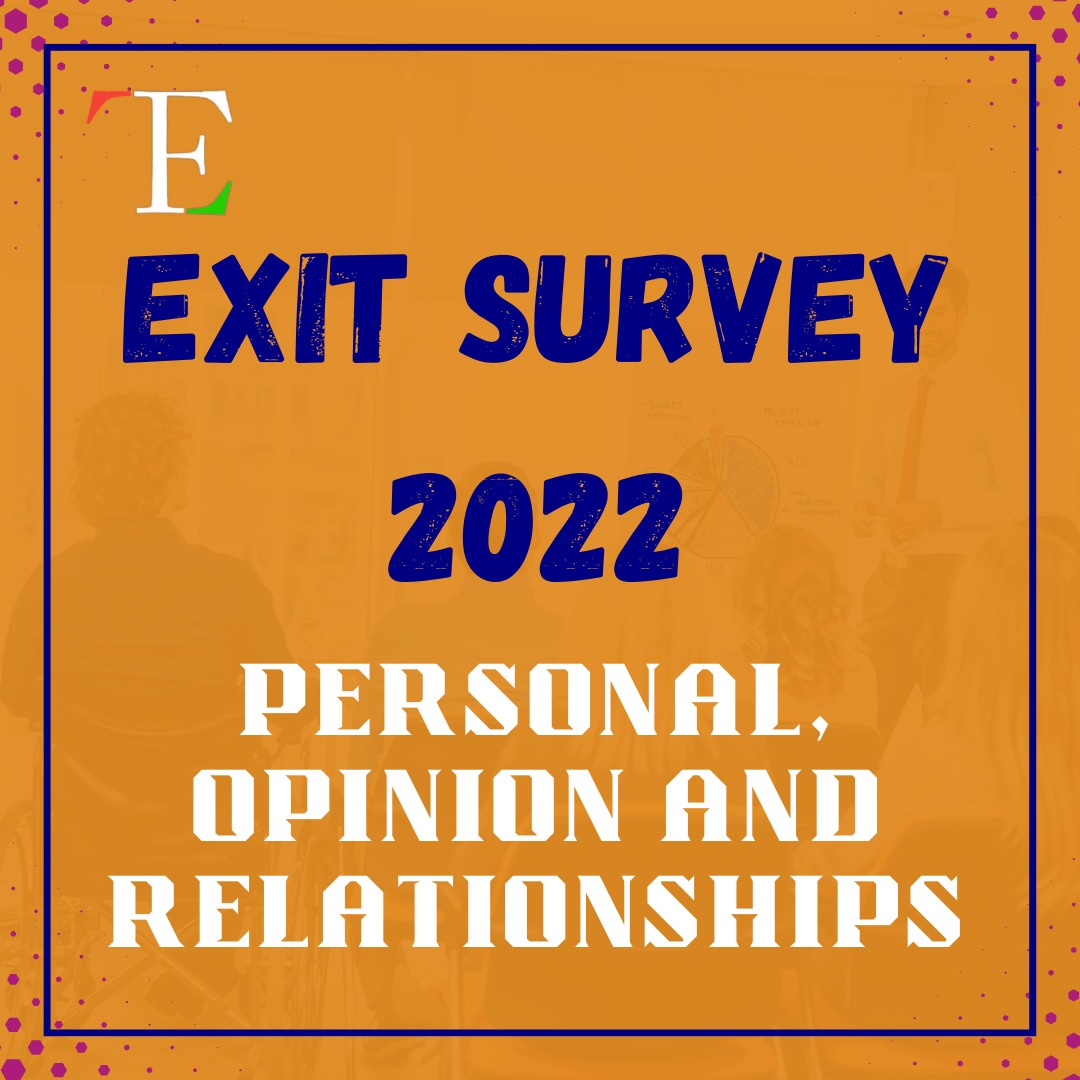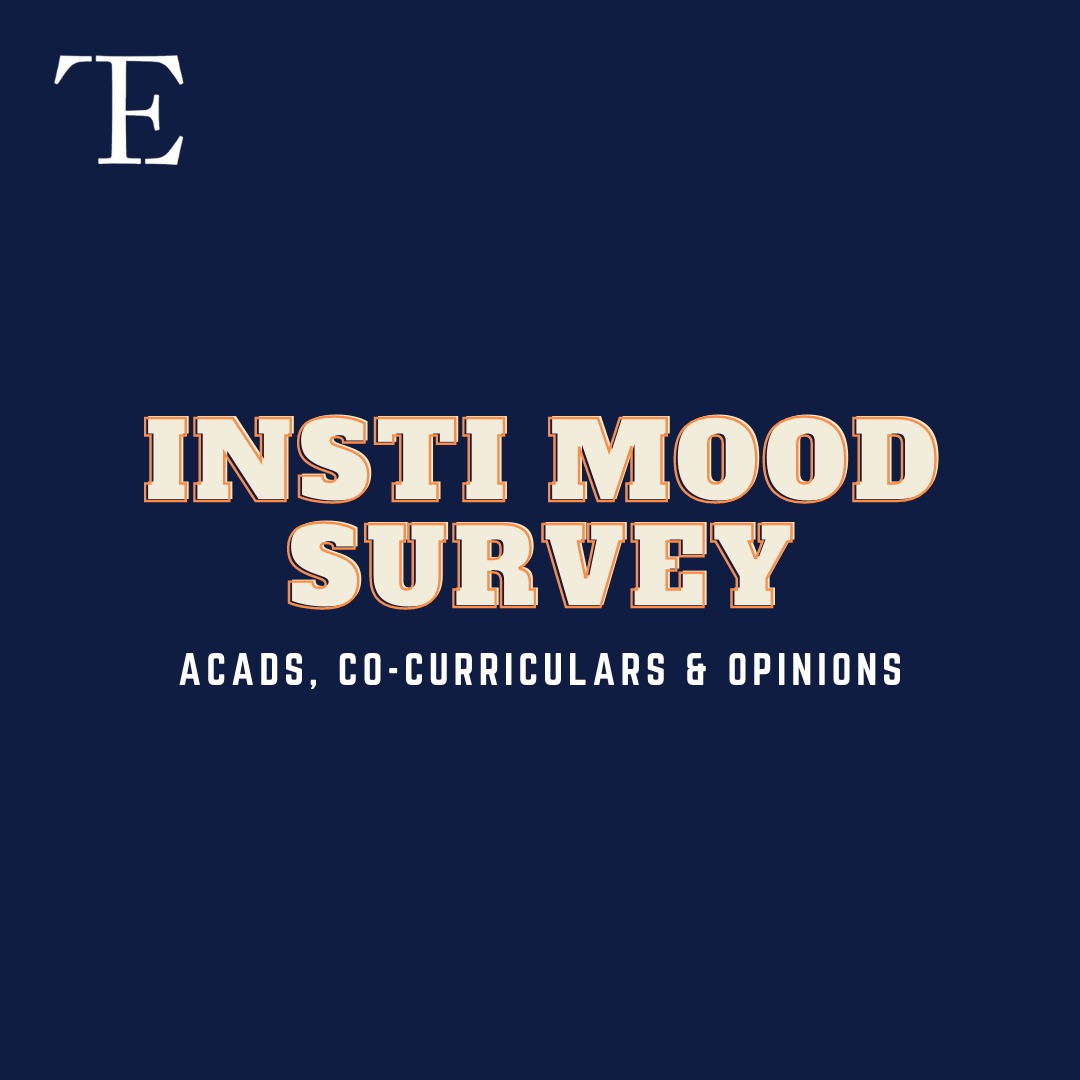Design: Swati Sheenum, G Shreethigha, Shaurya Rawat, Abhiram Pavithran O, and Hardhik Pinjala. Also featuring artwork by Ashleigh Green.
This is a strange time in our history. The world is engulfed by an unexpected virus, and we are quarantined at our homes, leaving insti behind. In this new normal, we at T5E are trying to understand the complexities of the situation facing us at this point in our student lives. To this end, we conducted a survey covering aspects such as academics, productivity, mental health, accessibility, and much more.
T5E’s Quaran-time survey was conducted in the month of may among IITM students and it amassed a staggering 1177 responses in only three weeks. In this article, we look at the mental health aspect of the survey, and try to make sense of the correlations found between mental health and the various factors expected to have an effect or be affected by it.
Pass time activities in quarantine

The most popular ways to combat lockdown boredom were binge watching (obviously), music, and catching up with friends. Surprisingly, there were 3 respondents who claimed they weren’t sick of this quarantine yet, but since the responses were anonymous, we’ll never know who they were. 🙂
Factors affecting Mental Health
The responses to the questions on general irritability and number of times there was difficulty relaxing/anxiety over a period of 2 weeks, were used to determine respondents’ mental state. For the latter 2 questions, we used the difference in the individual responses “while in insti” and “during the lockdown period”, in order to study the changes in each person’s mental state, before and after lockdown. (as opposed to just using their responses while in lockdown). A positive value for change in anxiety, indicates that people were more anxious in lockdown, than while in insti. Similarly, a positive value for change in difficulty relaxing indicates that people found it harder to relax while in lockdown, than while in insti.
There was an overall increase in how frequently people were able to relax, as well as an increase in how frequently people felt anxious. The result appears to be fairly intuitive, but this does imply that being able to relax easily, does not make people less anxious.
We also looked into the correlations between keeping in touch with friends, having a routine, time spent on social media, giving in to nostalgia, regularity of sleep patterns and exercise on mental health.
Keeping in touch with friends

Unsurprisingly, people who were in more frequent contact with their friends, were less stressed and found it easier to relax. However, the data for those who contacted friends several times a week, seems to contradict this. A possible explanation is that the reverse of the previous implication holds true here; i.e, higher stress is what drove them to contact friends that frequently.
Having a routine

This graph is arguably the most dramatic difference we’ve observed in terms of mental state among different categories.
It just goes to show that planning and following through on a routine of some sorts, helps a lot with being able to relax easier, as well as being less stressed. However, the data suggests that not having any plan at all, is a lot less stressful than making a plan but failing to follow through on it. Considering that nearly 50% of all respondents fall under this category, it seems prudent to either try harder at following through on your plans, or drop the facade of effectiveness completely, for the sake of mental health.
Time spent on social media

Easily the most consistent trend we’ve observed, in perfect keeping with what we’ve heard far too many times; more time on social media leads to more irritability. As boomer-ish as that may sound, the data is just overwhelmingly in support of it. So perhaps setting a daily usage timer for social media apps (and fighting the urge to disable it ._.) is worth a shot?
Giving in to nostalgia

A tendency to frequently open your gallery to reminisce is strongly linked to greater stress and increased difficulty relaxing. We can’t be completely certain whether the former is a result, or the causation for the latter; a little introspection will probably give you a better insight into that question than just raw data. The good news is, most of you (38.4%) don’t reminisce all that often; for those who do however, it might just be better to ring up your friends.
Sleep patterns:

As much as we tried to make sense of this, there doesn’t seem to be an overwhelming correlation between sleep patterns and irritability. There is some semblance of a column wise trend, as depicted, but nothing that quite as insightful as the previous correlations. In fact, the most startling data we gauged from this, was that nearly 75% of respondents had at least a pretty regular sleep cycle.
Exercise:

People who had some form of exercise daily, found it significantly easier to relax, as opposed to those who rarely/never exercised. Not too much of an eye opener, but hopefully it serves as a wake up call, to have some sort of regular physical activity; something to get the blood flowing on a daily basis might just be what your mental health sorely needs.
Conclusion
The lockdown is taking a toll on everyone’s mental state, to say the least. With uncertainty looming in almost every facet of our personal lives, these are far from ideal circumstances to be nursing our mental health. Hopefully this article provides some insight into how people are attempting to cope with it. And for what it’s worth, just keep in mind that this too shall pass :).
Here are some links for those who might need help during these times:
MiTr/SAATHI: Insti’s very own student body catering to mental health needs of students with MiTr focusing on reactive intervention (i.e counselling etc.) and Saathi focusing on the proactive side such as wellness awareness etc.
- Find Saathi’s Instagram Page here.
- YourDost Counselling Services: They provide their services (chat/voice call/video call) for free when registered using smail.
- Contact details of Insti’s full-time Psychologists:
[email protected]
[email protected]
NIMHANS : They are offering tele-counselling for a variety of mental health problems. Toll-Free No.: 080 4611 0007
iCall Psychosocial Helpline : Free counselling services over telephone, email or chat. Email: [email protected] ; Chat: @nultaapp ; Phone No.s: 9372048501 , 9920241248 ; 8369799513
Therapy In India: An organization that it easier to find a therapist near you. They have an online database and several helpline numbers to access.
That’s all folks! This marks the end of the Quaran-Time survey. Stay tuned for more surveys and analysis!
Check out other parts of the Quaran-Time Survey:




